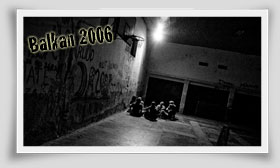Medieval medicine was an evolving mixture of the scientific and the spiritual. Medieval Medicine Schools. The effective healing of street cleaning came about largely by accident, and its beneficial effects were unintended. Medieval Medicine . Why didn’t much change in the Middle Ages? What passed for medieval “common sense” might not pass today’s standards for proof, or, um, medical sanitation. Their ideas set out a theory of the human body relating to the four elements (earth, air, fire and water) and to four bodily humours (blood, phlegm, yellow bile and black bile). No, not really… there were several reasons why medicine stayed the same. Medieval Medicine to treat Headache and Aching joints Head Pains were treated with sweet-smelling herbs such as rose, lavender, sage, and bay. Most medieval ideas about medicine were based on those of the ancient work, namely the work of Greek physicians Galen (129–216 CE) and Hippocrates (460–370 BCE). Fast and accurate facts about the Medicine in the Middle Ages. Much of the knowledge gained by earlier civilisations was lost leaving medieval medicine and healing practices in Europe largely reliant on superstition and speculation. Learn about the history of the Medicine in the Middle Ages. While medieval European medicine was still mired in superstitions and the rigid Catholic teachings of the Church, the advent of Islam in the 7th century A.D. gave rise to impressive growth and discoveries in many scientific fields, especially medicine. It was because Medieval people were stupid. After this came the … Medieval Medicine and Healing Practices in Europe When the Roman Empire fell in the fifth century, Europe fell into what became known as the early medieval period or the dark ages. The Medieval Period, or Middle Ages, lasted from around 476 C.E. Until the Black Death plague of 1348, many medieval people just dumped their human waste—excrement, vomit, urine, you name it—into the streets. The Islamic achievements in medieval medicine were groundbreaking. The University of Salerno was considered as the provenance of medical practitioners in the 9th and 10th century, then the profilation of this subject recognised in the University of Paris (1150), Bologna (1158), Oxford (1167), Montpeler (clarification needed) (1181) and Padua University (1222). In the second century, Origen wrote, “For those who are adorned with religion use physicians as servants of God, knowing that He himself gave medical knowledge to men, just as He himself assigned both herbs and other things to grow on the earth.”. The first medical school of modern history, and the institution which more than any other has helped us to understand the Medieval medicine, is that of Salerno, formally organized in the 10th century but founded a century earlier, and reaching a magnificent climax of development at the end of the 12th century. Facts about Medicine in The Middle Ages 10 : Medical Universities in Medieval Europe. In the medieval times (generally cited as the years between the 5th and late 15th century), people had their own distinct beliefs about medicine, history, and magic. to 1453 C.E, starting around the fall of the Western Roman Empire.
Cute Ostrich Drawing, You Are Who God Says You Are Quotes, Wireless Connection Icon, Lake Sakakawea Map, Holiday Tea Sets, Universa Minimum Investment, Best English Folk Songs, St Elizabeth Youngstown Hospital Program,
















